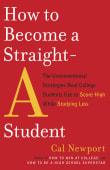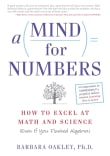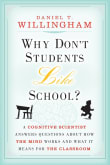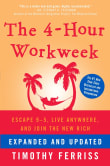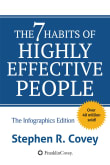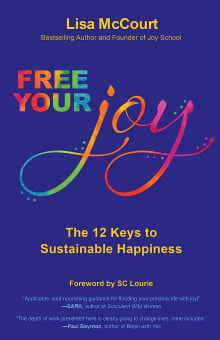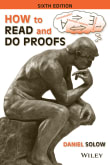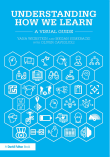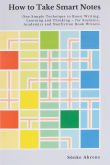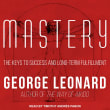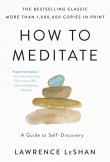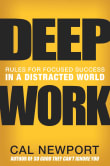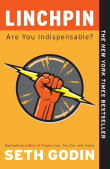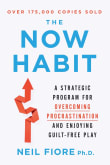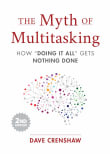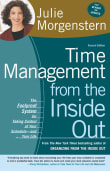Getting Things Done
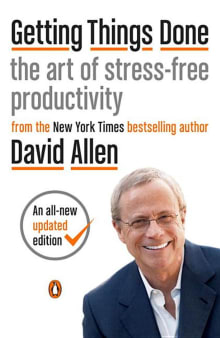
Book description
The book Lifehack calls "The Bible of business and personal productivity."
"A completely revised and updated edition of the blockbuster bestseller from 'the personal productivity guru'"-Fast Company
Since it was first published almost fifteen years ago, David Allen's Getting Things Done has become one of the most influential business books…
Why read it?
8 authors picked Getting Things Done as one of their favorite books. Why do they recommend it?

I think about this book every day, even though it was written almost 25 years ago, and the edition I read explained how to manage your paper file folders! (One of my most-used apps, the to-do manager Things, is built on this system.)
I love how much time this book has saved me as I juggle running several businesses, staying active in my hobbies, and running a household. Allen’s approach to capturing your ideas and then deciding how to organize them so that you can keep track of what needs your attention is both simple and really profound.
For athletes…
From Sage's list on books for athletes who want to up their game.

I’m always on the prowl for better ways to organize my many projects and to get things done. This book gives a very practical approach to task management.
It goes beyond time management; instead, it teaches you how to break things down and create actionable lists (as opposed to the huge To-Do list) to make the most of every moment. It also helps you to “empty your brain” of the should-do tasks in a way that reassures you that they will get done, freeing your mind to concentrate on the task at hand.
I’ve implemented the program and feel more…

This book is the bible of productivity and time management.
David's whole philosophy of "your brain is for having ideas not holding them" has been instrumental in how I approach work and the content of my own book.
The GTD methodology is a powerful tool for getting things out of your head and into a trusted system that you can rely on.
It’s a must-read for anyone who wants to increase their productivity and reduce stress in their lives.
From Nick's list on growing your business without all the headaches.
If you love Getting Things Done...

This is a classic and for good reason. I love the idea of putting each thing you have to do on its own piece of paper because once you do, you can organize and manage everything on your plate. You can triage and prioritize what needs to happen when, in any area of your life. And the “Someday/Maybe” file is a great way of retaining ideas and plans that aren’t a priority right now.
From Liisa's list on to boost your productivity.

When I first read this book, like so many people, it totally changed how I view productivity, and still today, it has a massive influence on how I organise my life – both personally and professionally. Ironically, this book had been sitting on the shelf of my chief executive office, gathering dust for quite some time before I read it... due to me being too busy and stressed out to pick it up! Reading Getting Things Done then made me realise the waste that goes on – not through negligence, but from the stress and chaos of information overload –…
From Graham's list on productivity from a productivity ninja.

Getting Things Done started my journey of productivity. The central idea completely organizing my thinking: that you can use your own sense of trust to both build and measure a working system. Do you feel that something will get back to you when and where it would be useful to you? If not, what can you do to get it there? The more you can honestly answer these questions, the more it will be off of your mind, and the more you can guide where you want your mind to be.
From Kourosh's list on people who want to do work they find meaningful.
If you love David Allen...

Succeeding in a mathematics degree requires not only intelligence but also organization. Many students are not great at organization because they have comparatively little experience in taking responsibility for time management and because they are, after all, just people. This sometimes causes them a lot of stress. I think that the stress is largely avoidable, and Allen agrees: one of his main points is that stress comes from the nagging sense of important things not being done, so that it is useful to have both a grip on what is important and realistic plans for when important things will be…
From Lara's list on studying undergraduate mathematics.

Being able to organize all the things you need to do is essential if you want to learn better. One of the challenges many students face is that they have many exams, essays and homework assignments that they do on deadline. This results in lots of late nights (and subsequently poor performance).
From Scott's list on becoming a more effective learner.
Want books like Getting Things Done?
Our community of 12,000+ authors has personally recommended 100 books like Getting Things Done.


